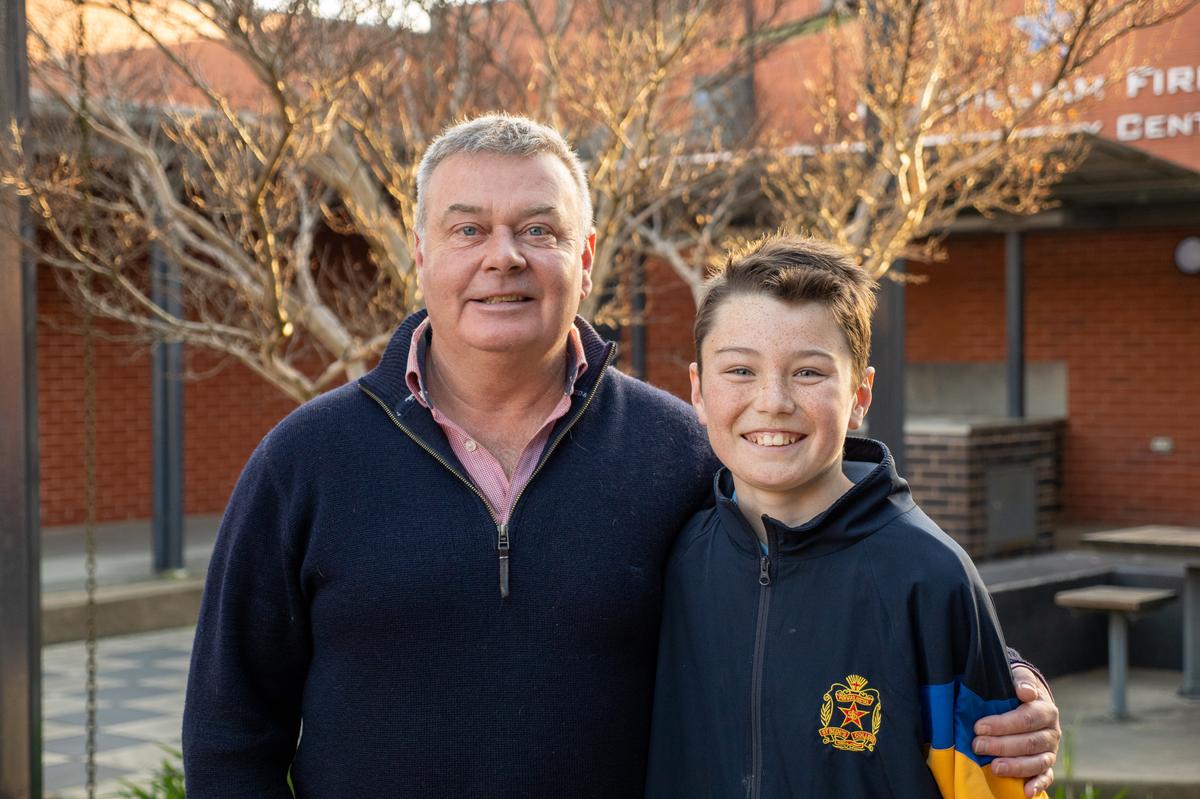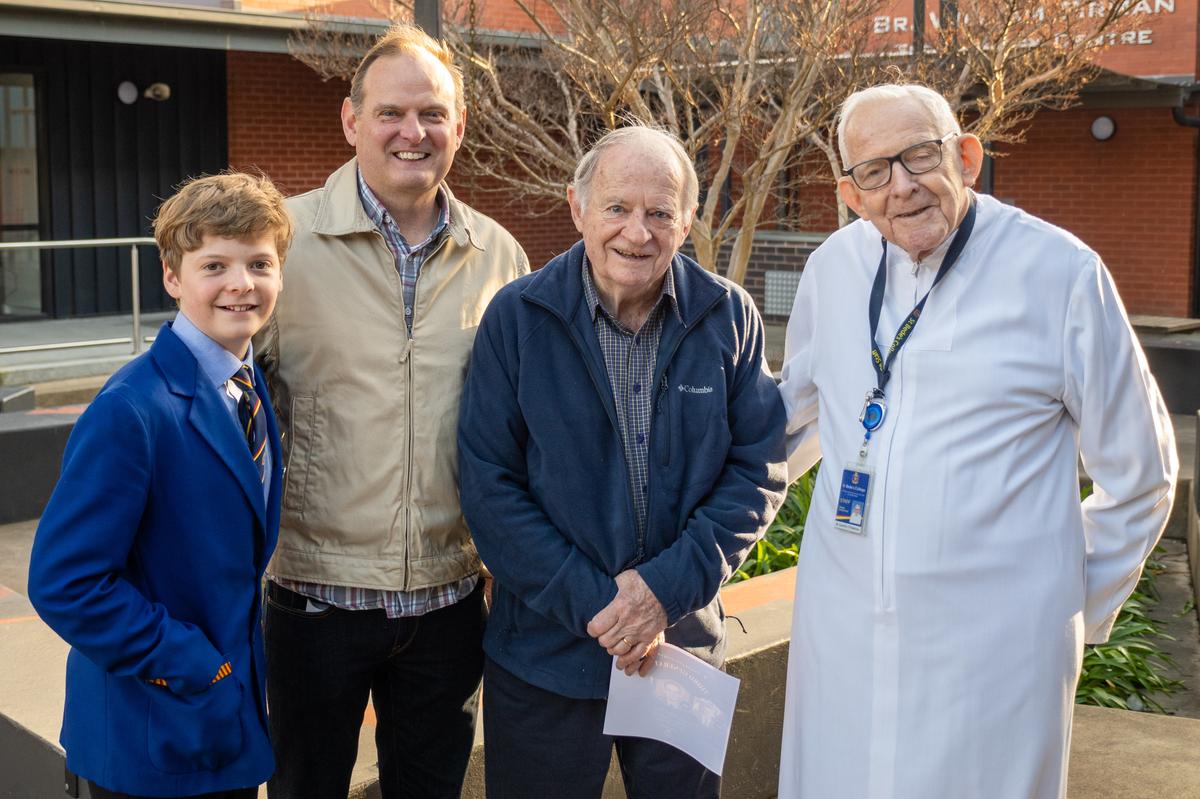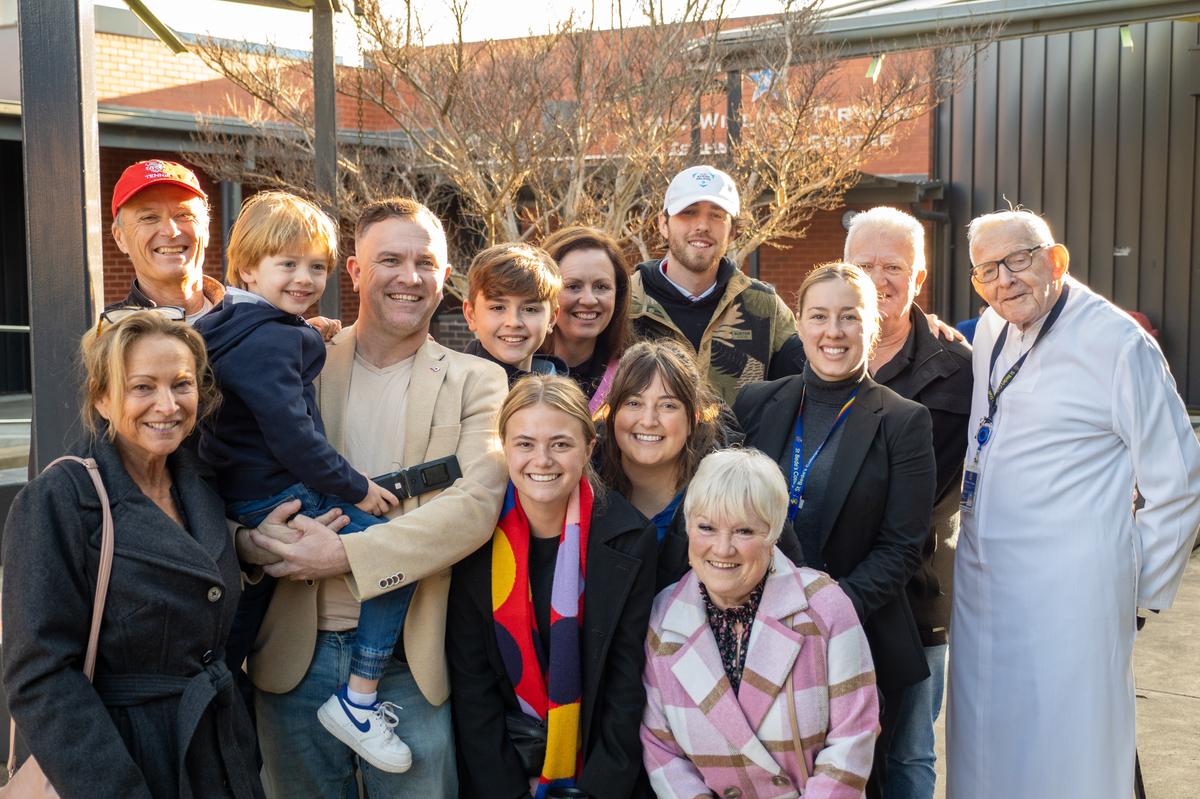Principal's Update
Per Vias Rectas

Principal's Update
Per Vias Rectas
On August 1, the Victorian Registration and Qualifications Authority conducted a check of St Bede's College policies, procedures and practices, to ensure our compliance with all Federal and State Statutory requirements for a secondary college.
The check is quite heavily focussed on our Child Safety (Safeguarding) compliance. This is the number one priority of the College and we are constantly monitoring our practice, protocols and policies in this area. The College was found to be compliant with all requirements.
Thank you to Enzo di Toro (Director of College Compliance and Policy Development), who takes the major responsibility for ensuring these matters are in order.
Learning comes in all forms, whether it be physical, spiritual, mental or academic, as well as through incidental experiences that shape every person as a unique individual. Sport and physical activity have major benefits in all aspects of life, including mental, social, physical, and in spiritual health and wellbeing.
While physical activity is well-known to provide multiple health benefits in children and adolescents, an alarming 81% of those aged 11–17 years are insufficiently physically active, as reported in International Journal of Behavioral Nutrition and Physical Activity.
Sport provides many boys with a chance to “escape.” They love the freedom of movement it provides, the chance to make friends, to be challenged, to compete and learn to improve in a specific set of skills.
While I know our Beda students love sport, and our participation rates and competence are at very high levels, it's relevant to reinforce that at St Bede's College, we don't treat physical education and sports education as an “add on”. It's an essential ingredient in our offerings to students because of its intrinsic value and for the valuable spin-offs it provides for many aspects in the academic life of students.
Sport at school provides boys with opportunities to explore different sports and then decide on their preferences. Team camaraderie in sport brings many lessons in forming friendships, collaboration, working on strategies and skills as a team, and the satisfaction of bringing all the training together to make it work - and in some cases - to win. These are some of the essential skills being encouraged for future employability in today’s workforce.
There's no better feeling than when you and your team win. The most important life lessons, however, are in the losses - because losing is a part of life. There can never be two winners. This is a life challenge everyone can master through participation in sport and competition, and is such an important lesson for boys.
Sport strengthens our mental capacity, as the brain is trained to carry out skills through repetitive and disciplined practice. Your mind pushes you to the limit when your body is tired, and to persevere when things get tough. This skill - of perseverance, of resilience and a never-give-up attitude - helps people through many tough times in life.
As we move into the second half of the term, with the challenges of exams and VCE on the horizon, I encourage all of our students to focus on 'topping-up' their strengths so their reserves are ready to support them.














We were so pleased to welcome 34 students and their families, for our Celebration of the Generations event on Friday 11 August.
Special pins were presented to 30 second-generation families and to 4 third-generation families. The Noonan family has a 55 year association with St Bede’s College; the Campion family, a 65 year association; the Meyers family, a 67 year association; and the Condon family, a 70 year association.
What a joy it is to see so many familiar, friendly faces join together from across the years and continue a family legacy of Beda Brilliance.
Recent Sunday Gospels have centred around Jesus’ parables. The teaching of Jesus is grounded firmly in the Jewish world of the 1st Century. For most of his listeners, that world was an agricultural one and so the stories Jesus told were about the everyday realities of peoples’ lives. He told stories about vineyards, wheat fields, building houses, planting seeds and reaping harvests. The imagery he used was drawn from the lived experience of those he taught. Jesus used a style of storytelling that was popular at the time: parable.
A parable is a story with a moral or a lesson. While some suggest that Jesus gave about 30 parables, others put the number at around 50. So many parables have become ingrained in the everyday life of people all over the world. Who does not have some familiarity with the parable of The Good Samaritan, the Prodigal Son or the Good Shepherd?
You might understand a parable to contain two distinct layers. On the surface, the parable was just an interesting story, one that was easily understood by the listeners and based on things within their own experience. But the parable also had a deeper meaning, illustrating a spiritual truth. In Jesus' use of parables, this truth commonly dealt with the kingdom of Heaven. And it was a truth that was easy to miss.
One of the recent Gospels covered a parable that goes by several names: The Parable of the Sower, the Sower and the Seed, or the Soils. This parable pictures a man sowing seed in his field. The sower casts the seed over the whole field, but not all the soil in the field was equally receptive to producing a good crop. Part of the field grew nothing, other places allowed the seed to sprout but not produce, and in some areas, the soil afforded an abundant harvest.
As Jesus explained this parable to his disciples, we find that the seed is the word of God. The four different types of soil that receive the word are four different ways that people respond to the Gospel. Some reject it immediately. Some accept it, but fall away after some challenge. Others accept the Gospel, but other things in their life choke it out.
And finally, there are those who embrace the Gospel and become fruitful.
What has this parable got to say to us here and now?
Per vias rectas
By right paths
Deb Frizza
Principal